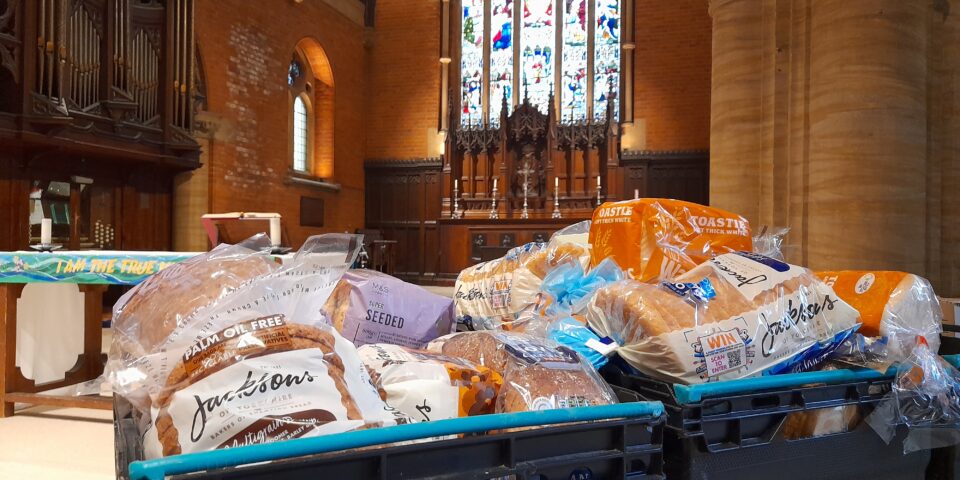Dr Carl Walker to discuss his new research in a webinar for London churches
The latest end of year stats from Trussell show that, between May 2024 and 2025, 2.9 million food parcels were distributed across Trussell food banks. 455,571 of these were in London.
Across the Diocese, approximately 71 churches are running food insecurity projects – and colleagues there are reporting increasing demand as needs become harder to meet. Churches are well aware that staff and volunteers may be vulnerable to stress and fatigue, but they may not be familiar with the risk of “moral injury.”
“Moral injury” is the distress caused by having to operate in contradiction to one’s personal moral beliefs. While this is an established phenomenon in healthcare and military contexts, moral injury has only more recently surfaced as an issue in food insecurity projects – environments where limited resources are met by overwhelming need, forcing the distributers of food to take ethically painful decisions as to whom should receive (or not receive) support.
Operating as an unofficial part of the welfare state, staff and volunteers are serving people in “hunger trauma” – without the training and practical resources they need.
This is the subject of research by Dr Carl Walker, community psychologist with 25 years experience, and co-founder of the Alliance for Dignified Food Support, in his latest report: ‘Managing Hunger Trauma in Community Food Support: Systemic Betrayal, Moral Injury, and Distress in Staff and Volunteers.’ He observes:
Many volunteers feel that it is their responsibility, as moral citizens, to intervene in the sometimes overwhelming humiliation, trauma and distress that many in poverty encounter. We found clear examples of volunteers experiencing profound moral injury and distress by being forced to manage moral conflicts and dilemmas on a daily basis where they felt helpless yet responsible for decisions which could negatively impact some of the most vulnerable people in society. Because they are exposed to this with little training or support, many find themselves exposed to emotional burnout, guilt, shame and distress, which often stays with them long after they left their shift.
Dr Walker et al
As long as emergency food projects continue to operate in a policy vacuum (the UK has no national food insecurity strategy), the outlook is bleak. Dr Walker argues that, in the short term, funding is needed to support volunteers – including through psychological support and trauma training. In the longer term, he advocates for a collective representation that will work for real solutions to the hunger crisis and its by-products of trauma and moral injury.
- Find out more by reading the report.
- Or join Dr Walker himself for a free online lunch and learn on Tuesday 1 July at 1pm. Come and hear his findings and consider what you can do to protect your staff and volunteers, and what role you might play in working with others to advocate for justice.
